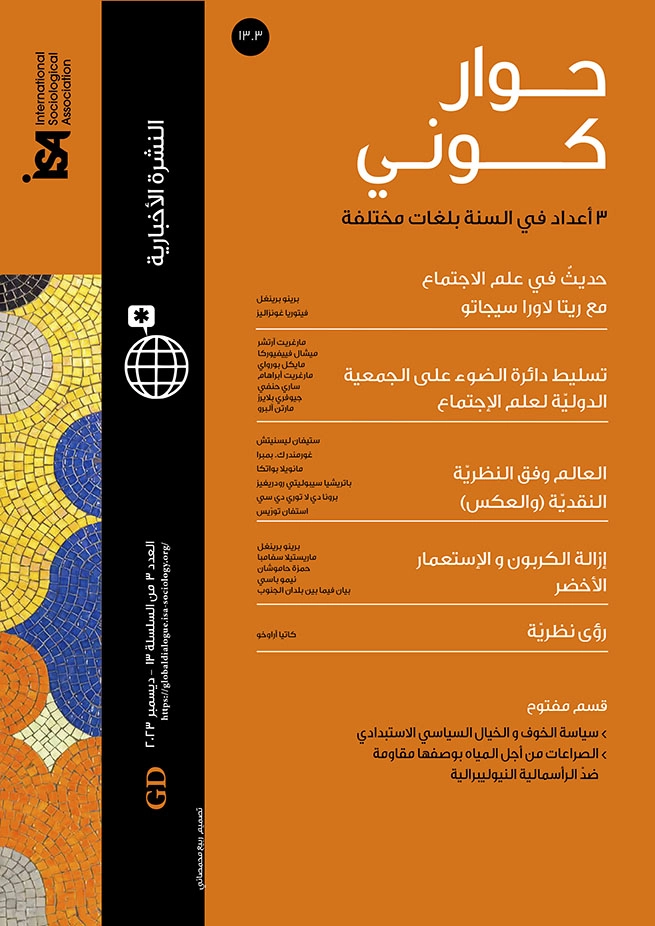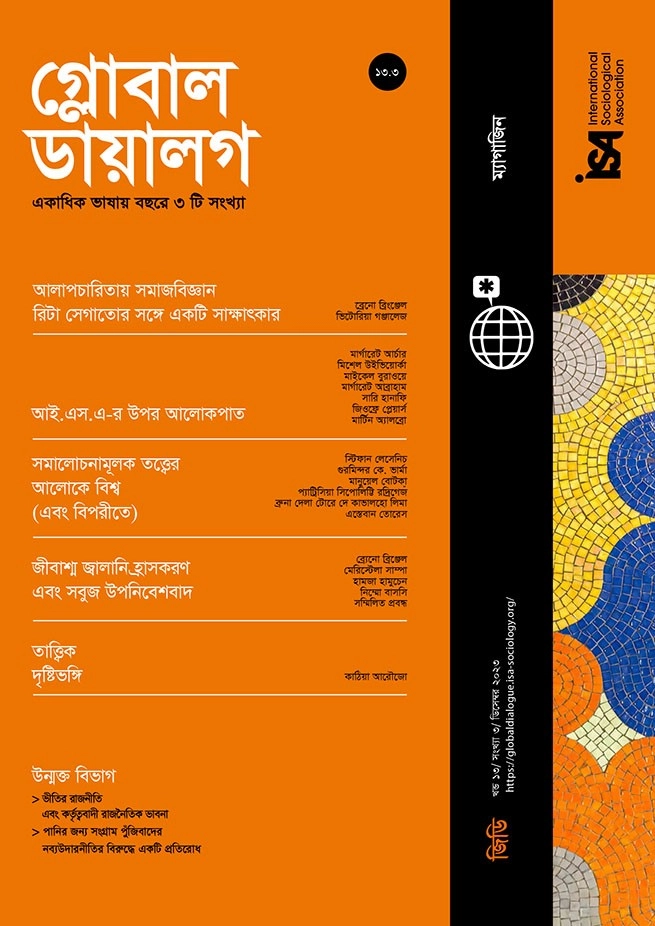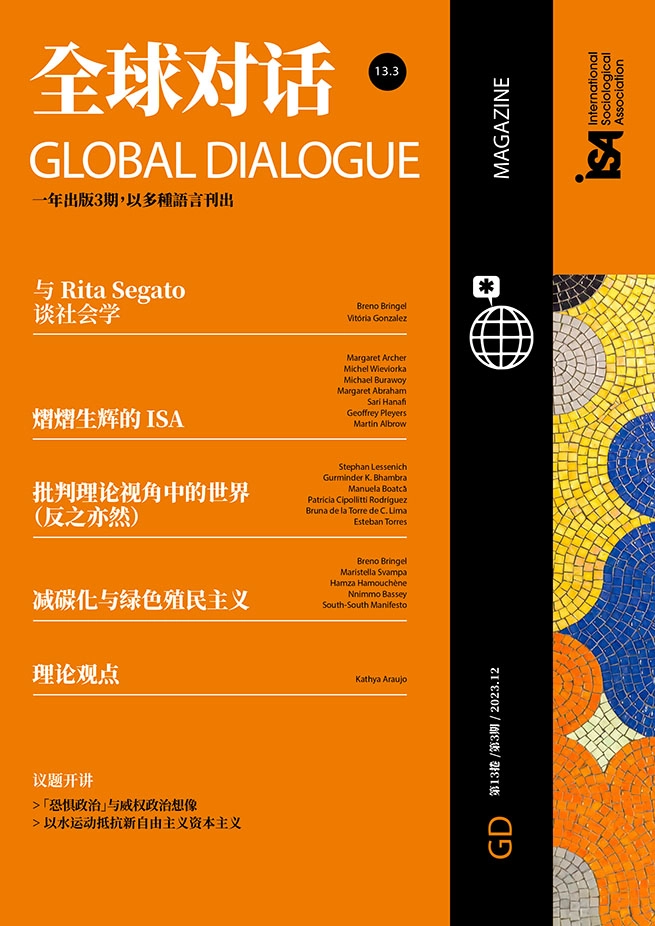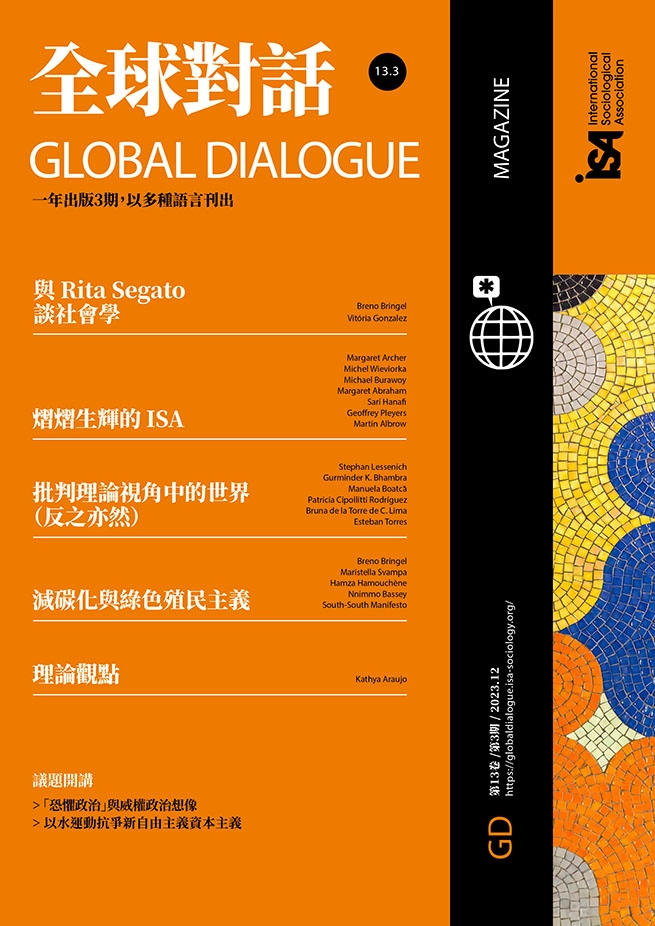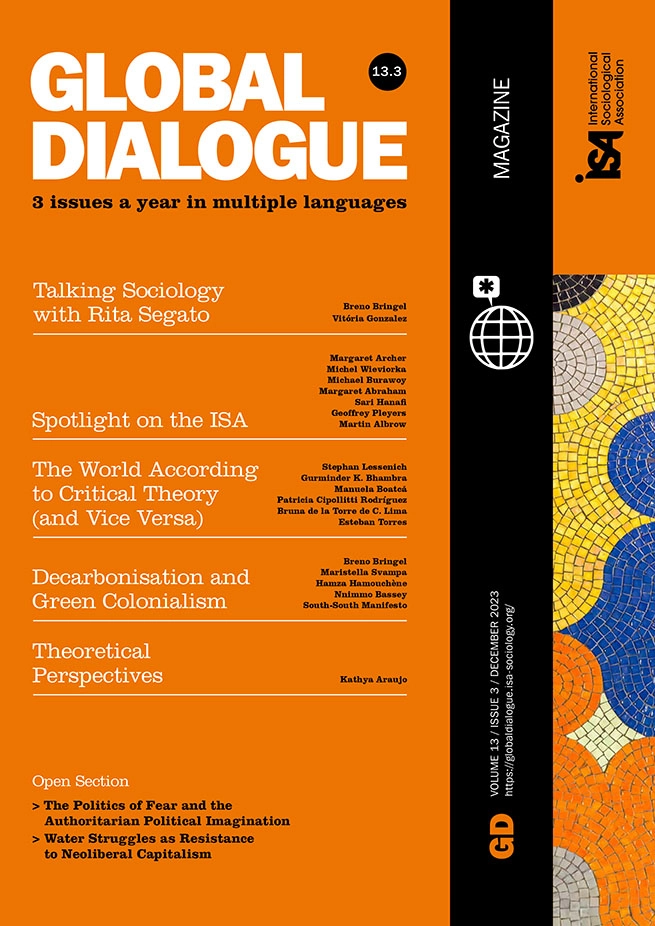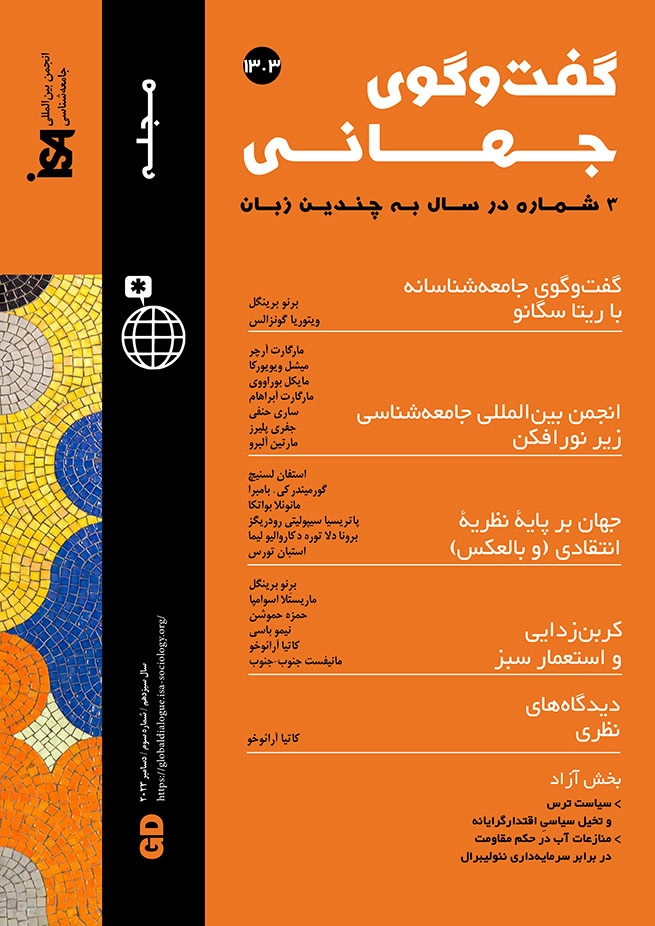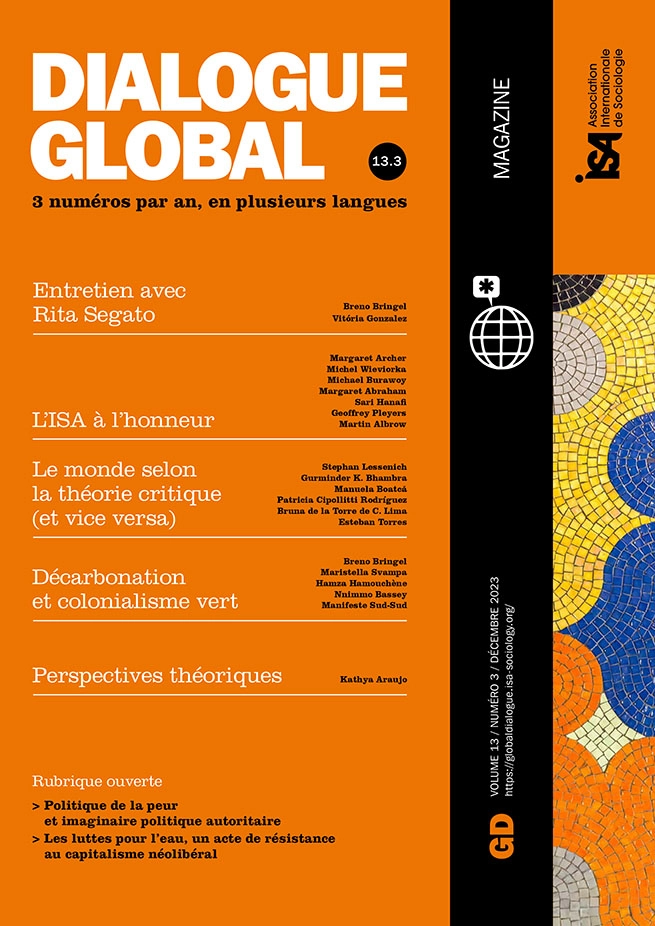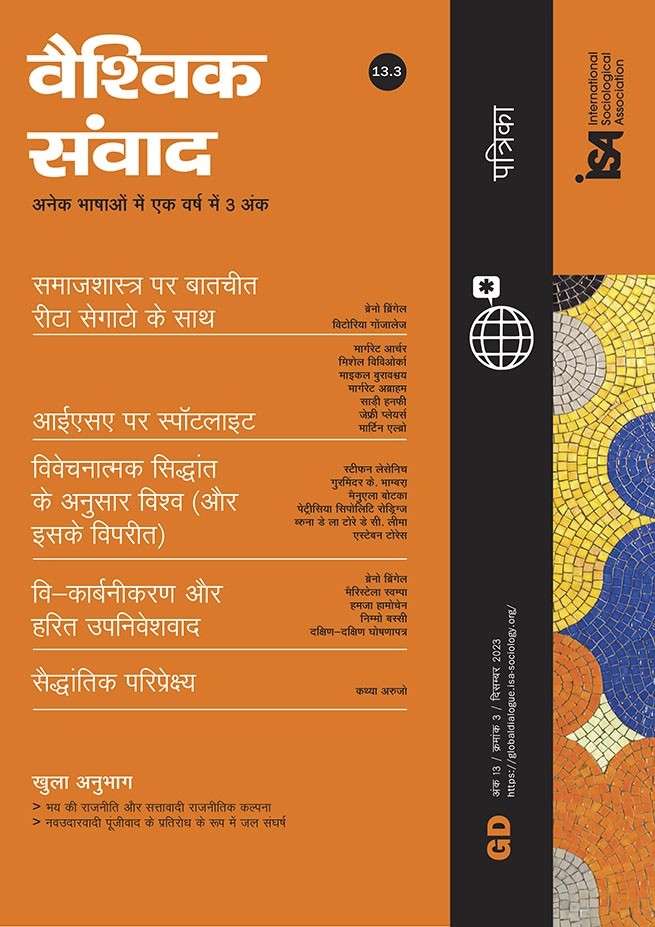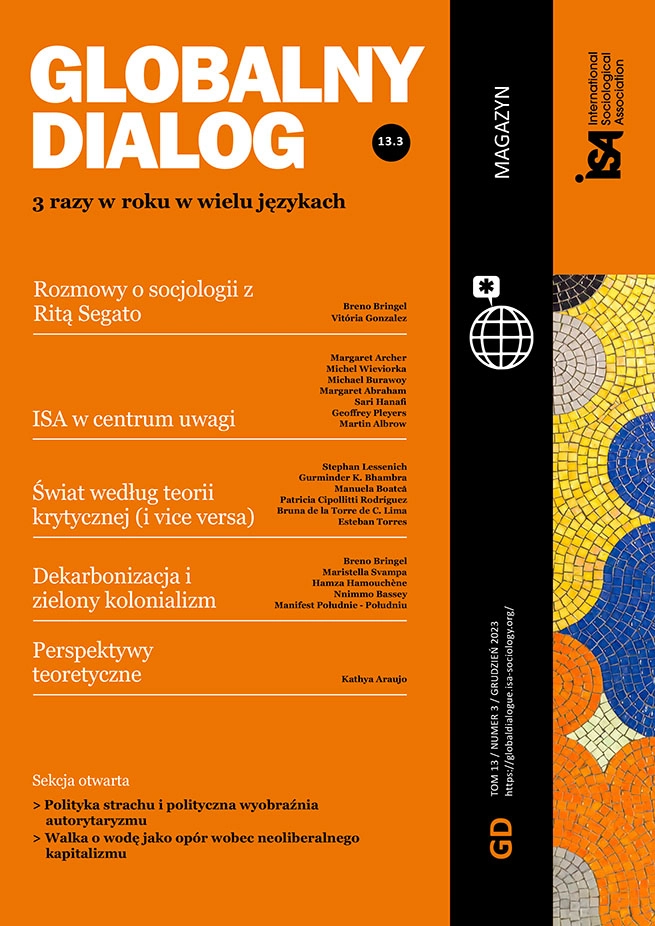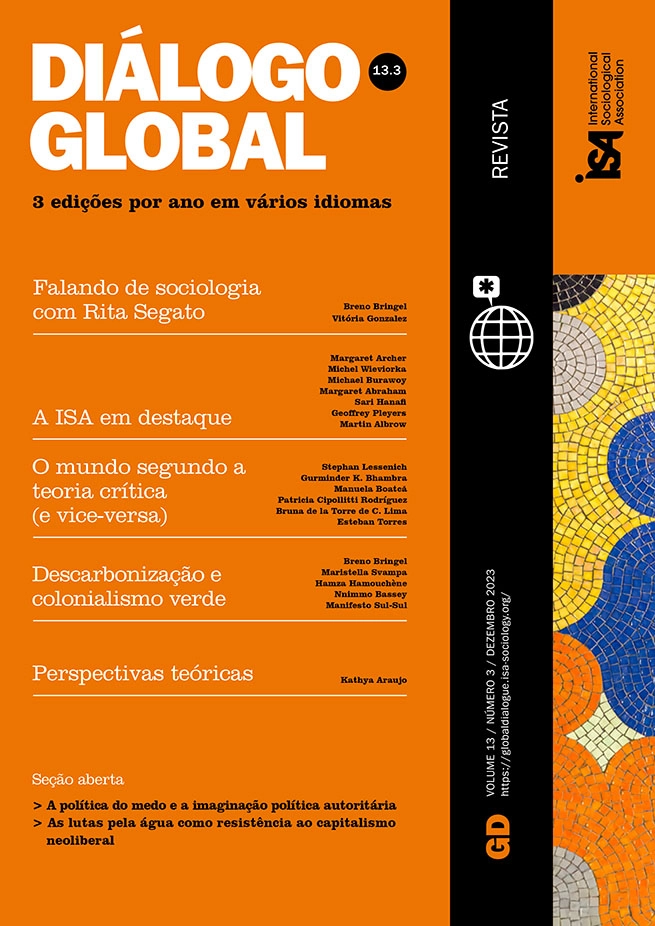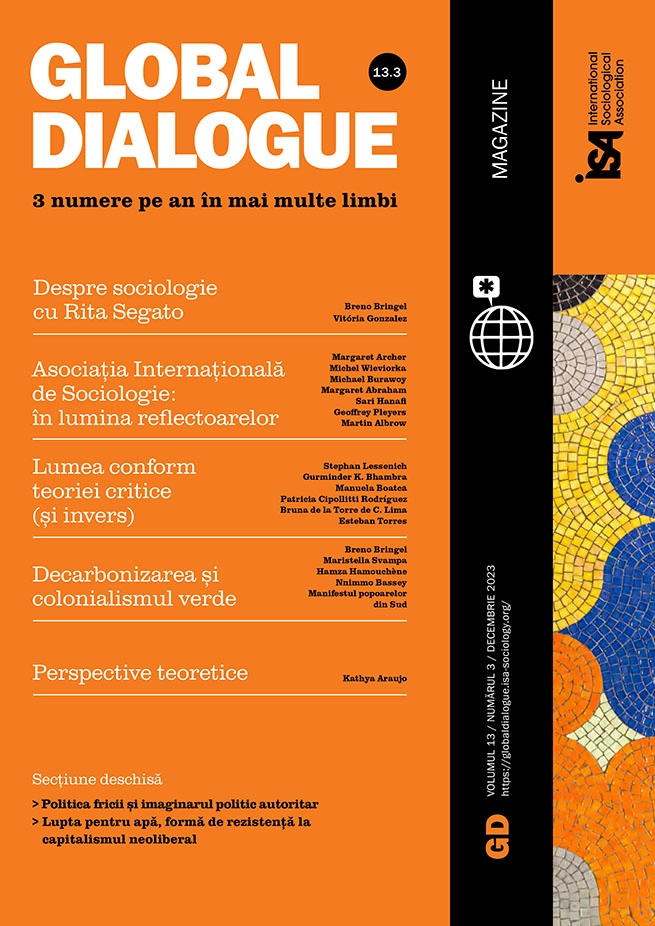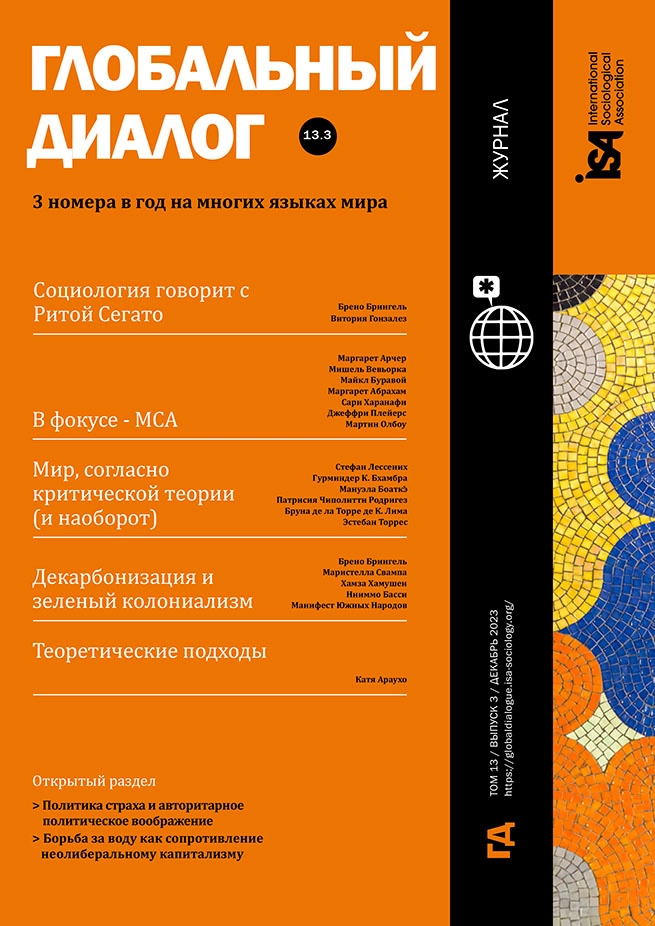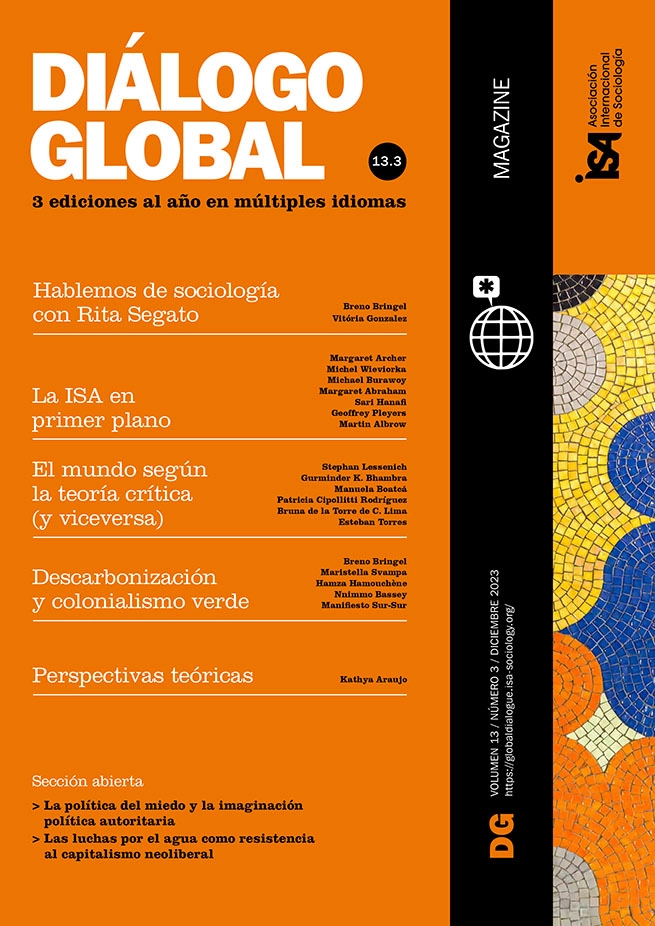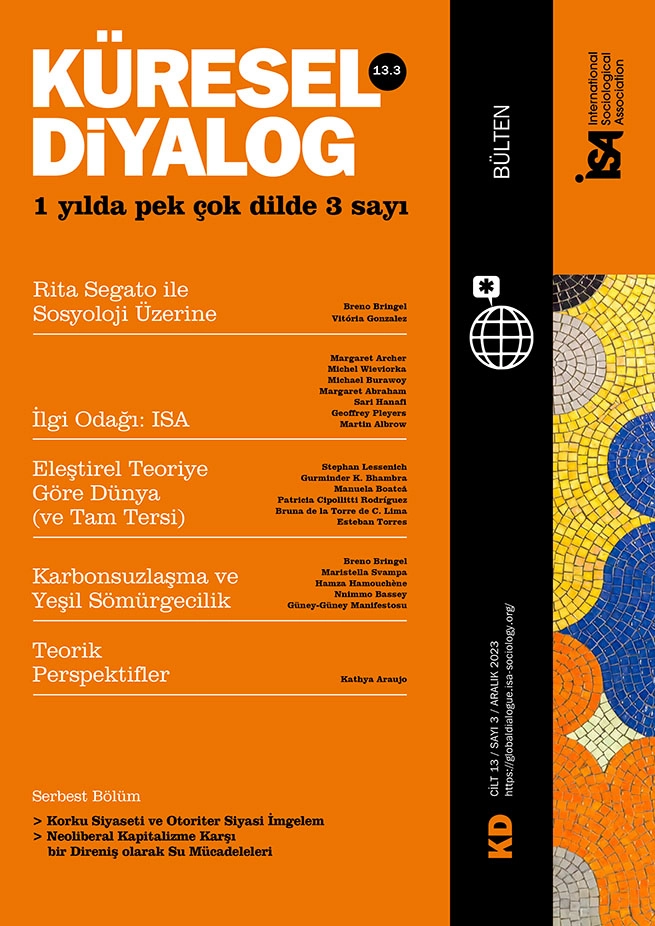The Need for a Renewed Theory of Authority (and Authoritarianism)

November 20, 2023
Authority – and the ways in which it is exercised – is a problem that is as topical as it is urgent. The concerns surrounding this issue include phenomena ranging from social support for authoritarian regimes, authoritarianism itself, teachers’ difficulties in exercising authority in schools or the management of urban spaces, to tensions within families. The urgency and the risks contained in the social and political phenomena we are witnessing today suggest that we must address this issue with greater precision from sociology, and we need to do so with the appropriate tools. However, sociological studies on the exercise of authority have so far been scarce; above all, there needs to be more renewal of the notion of authority in theoretical terms.
The question of authority constituted a very early focus of interest in social theory, and the most influential author in the study of this phenomenon was Max Weber. The understanding Weber offered – based on the idea that a belief in legitimacy sustains authority – has remained the most influential in social theory and empirical studies. However, as I discuss here, it is not advisable to maintain the hegemony of this conception for two reasons. First, the thesis of authority via legitimacy only allows us to capture this phenomenon in today’s societies partially. Second, it can only account for a particular exercise of authority specific to certain social realities.
Let us start by considering the first of these two reasons: the scope of the thesis of authority via legitimacy for studying today’s societies. As we know, Weber considered that at the heart of the dynamics of authority is the belief in legitimacy, that is, belief in the well-foundedness of command or the exercise of power. Belief in legitimacy allows for consensual exercise, which is fundamental to understanding its stability and permanence. Weber developed a notion of authority, understanding hierarchies as stable and relatively durable over time. Hence, his theory accounts for a type of exercise of authority that still has some foundations and support based on institutions, traditions, or generally shared values. Such an exercise of authority has the following characteristics: a) it is linked to a conception of hierarchies as stable and enduring; b) obedience is grounded on a syntonic relationship of ego to command; c) it is based on a relatively stable picture of power distribution between groups (men over women, adults over children, etc.); d) it is exercised primarily in a relational intersubjective manner; and e) it is supported by mediating roles between community members and between community members and things in the world.
Challenging the classic model of authority
Several transformative social currents have challenged such a model of the exercise of authority. I will briefly mention five that have impacted many societies and how individuals conceive of hierarchies and authority.
The first current is linked to the pluralisation of moral orders, beliefs, and values. This tendency has contributed to weakening the typical support for authority. But it also breaks apart the theoretical demand for the existence of common and shared beliefs as a support for legitimacy.
The second current is the constant expansion and deepening of the normative principles of equality and autonomy. A significant consequence of these processes has been the questioning of hierarchies and their condition of stability and durability, which is what the Weberian thesis takes as its explanatory assumption.
The third consists of the intense processes of individualisation related to an increased resistance to subordination to the will of another. There is an apparent tension between the demand to emphasise individuality and its singularity, and the need for intersubjective obedience or compliance. Therefore, the ego-syntonic dimension considered central to the legitimacy thesis becomes tense.
Fourth, shifts in power allocations between groups have challenged traditional ways of structuring hierarchies and their management, for example, the patriarchal model of authority. They have also produced a more conflictual and contested scenario, undermining support for the stability of hierarchies.
The fifth current has to do with technological developments. These have challenged relational authority’s weight by introducing new factual authority principles. In doing so, they bring the relational and strongly intersubjective character assumed by the Weberian thesis into tension. But they also question the mediating role of authority figures such as doctors or teachers.
In short, these new currents question authority as we used to know and conceive it, but, in doing so, they also question constitutive dimensions of the notion of authority as portrayed by the thesis of authority via legitimacy.
Rethinking authority via legitimacy
The thesis of authority via legitimacy can also be questioned from a second perspective, along with the socio-historical challenges of the currents just mentioned. My research on the case of Chile reveals that there has not been only one modality of exercising authority; various modalities need to fit into the explanation offered by the legitimacy thesis.
My findings show that the exercise of authority in Chile has historically been based less on the conditions for consensual obedience (as in the Weberian model). In the Chilean case, the exercise of authority does not involve legitimation, that is, efforts to strengthen the belief in legitimacy. Instead, there is a strategic concern to make the other obey. In this case, what sustains authority is that the one exercising authority evidences his (or her) capacity or ability to make himself (or herself) obeyed. The test of authority is the behavioural effect it has.
To the extent that there is little concern for achieving reconciled consent, obedience is often not ego-syntonic. Rather, it is usually the result of strategic evaluations which are pragmatic and based on the interactive capacity of the actors. This is contrary to Weber, for whom interest could never be the basis of belief in legitimacy and thus the foundation of authority.
This historical type of exercise of authority in Chile tends to generate unstable and fragile authority relations, which in turn demand a more severe use of what might be called “strong authority”. When authority must be exercised, there is a conviction that only a discretionary and “strong” exercise will guarantee its effectiveness. Thus, contrary to the Weberian thesis of legitimacy, which aims precisely to conceal the force or power involved, this kind of exercise of authority consists in displaying signs of the strength of the person exercising it, for example, a speech that is “strong” or “clipped” gestures and so on.
This is a historical modality of the exercise of authority proper to a historically vertical society with rigid and naturalised hierarchies, which currently clashes with a new dialogic-democratic normative model of authority (and which is also distant from the model of belief in legitimacy). However, it is still a widespread model of authority in society as it is considered indispensable today and the only one that guarantees obedience.
Thus, my research shows that there are different modalities of exercising authority according to social realities and that they are related to the ways in which each society solves the problem of managing the asymmetries of power among its members. These different modalities of authority should not be considered deviations from a norm but rather as particular historical solutions that must be understood within each society’s structural characteristics, dynamics, and social logic.
Towards an interactive and situated approach to the exercise of authority
The two lines of argument that I have developed concerning the limits of the theory of authority via legitimacy converge in one need: to renew our theoretical, and therefore conceptual and methodological, approaches. One proposal in this sense is contained in the interactive and relational approach, which I have developed and tested in a set of empirical studies.
First, this approach proposes that we think of authority as one among many social mechanisms (politeness, civility, sociability, etc.) for managing power asymmetries that shape social life in societies constitutively traversed by power asymmetries. This allows us to move away from the false dichotomy of authority in social theory as a simple mechanism of integration or a pure instrument of domination.
Second, it proposes that we undo the close relationship between the notion of hierarchy and hierarchical order and, therefore, the conception of hierarchies as durable, permanent, and rigid. This is because this form of understanding hinders the intelligibility of the management of power asymmetries in more mobile societies, with more transversal chains of power distribution and more significant alternation in the occupation of places of authority. In contrast, it proposes that we start from a conception of hierarchies as mobile with diffuse and transitory borders.
Third, it suggests that the foundations of authority and the reasons for obedience, and therefore the purely representational dimension in the study of authority, should be less important as an object of analysis. We are at a time when explanations based on foundational components (foundations) and performances based on normative consensus (such as the theory of legitimacy based on representations) are showing their limits. This novel approach, therefore, places the analytical emphasis on the exercise of authority. Analysing this interaction can provide comprehensive keys to understanding authority in societies characterised by alternation, contingency, and plurality.
Fourth, it no longer conceives authority as exhibiting the compact homogeneity that is usually derived from the theory of legitimacy, largely thanks to the notion of “ideal type” used by Weber. The suggested approach proposes that we consider authority as a particular solution found by societies with specific structural and historical features, which faces different demands for its exercise depending on historical moments, the social sphere in question (family, politics, work, or others), and the social position occupied.
In short, we urgently need to renew our tools for studying authority. And, in this sense, as the results of my empirical and theoretical research indicate, we need to move from an approach based on “belief in legitimacy” to an interactive and situated approach to the exercise of authority that can account for how social actors today solve the problem of managing power asymmetries in different societies.
Kathya Araujo, Universidad de Santiago de Chile, Chile and member of ISA Research Committee on Sociological Theory (RC16) <kathya.araujo@usach.cl> / Twitter: @AraujoKathya

